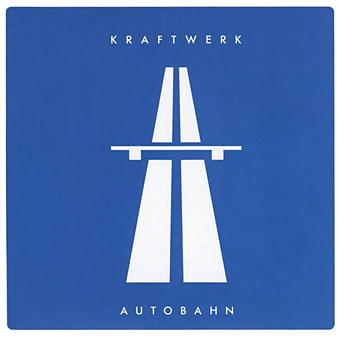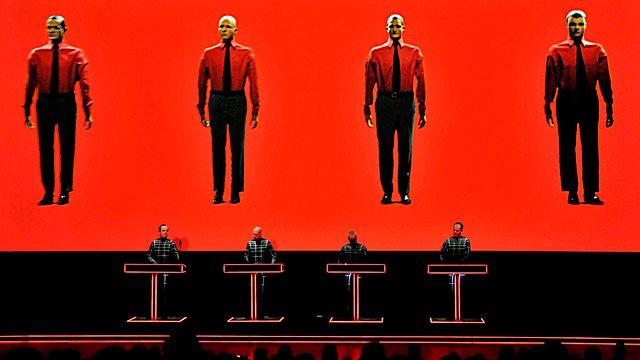Some documentaries can feel like trying to view a desert landscape through a telescope. The need for tight focus on too large a subject can leave you constantly aware that there’s important stuff going on out of eyeshot. The stuff you can’t see becomes a constant irritant, like a pending tax return, or David Starkey. Kraftwerk: Pop Art, in significantly narrowing its focus, was more like studying a Petri dish under a microscope – and just as fascinating.
The particular prism chosen for this band biography was the connection between Kraftwerk and the art world. This was centred around 2013’s Tate Modern gigs (a tour that also saw the band perform at New York’s Museum of Modern Art), of which there was extensive footage, and provided a nifty narrative rake from which there was a clear and largely uninterrupted view.
Rumours that the documentary was part of an informal and ongoing strand called Let’s Ask Paul Morley! were unconfirmed at the time of writing, but his talking head was on incisive form here. Actually, that could just be the editing. Judging from the change in backdrop from afternoon light to glittering night, Morley must have talked for hours. However, during this time, he made some exceptionally good points, claiming Kraftwerk to be more beautiful – and influential – than The Beatles. Nothing controversial there then.

While arguments may rage to whether he’s right about the influence (he is by the way), the programme provided much compelling evidence to support his primary assertion. As well as the concert footage from the Tate Modern (think Tron meets a four-way Reith Lecture), there was some wonderful archive film from 1970 onwards, depicting the band’s development from prog-infused wig-outs to precise, processed restraint. While the later footage served to highlight the delightfully seductive and emotive melodies and perfectly punched percussion, it also showed Kraftwerk as convincing, accomplished actors, perpetually playing the part in their carefully crafted piece of performance art. So much so that, at times, you’re half expecting a sidebar to fizz into life to tell you you’re watching “Florian: played by Mark Gatiss". It also gave weight to Morley’s point that Kraftwerk is not so much a collection of performers, but a coherent work of art itself.
Certainly, the process has always felt as important as the product and, when the programme addressed the working methods of the group – building their instruments from scratch when the available technology wasn’t up to the job, there seemed a hint of communist ethos about it: they owned the means of production after all.
This communist influence wasn’t in isolation though – we were taken on a welcome walk through the clear visual echoes by former art director of The Face, Neville Brody. A look back at the band’s album artwork, with its nods to Russian constructivism and Rodchenko’s powerful, primary images of Russian workers also bore a startling comparison to the communicative economy of Mondrian and Kandinsky. It wasn't your standard rock-doc fare, and was all the better for it.
Kraftwerk: Pop Art was, much like the band itself, clear, concise, focused and thoughtful
Unusually, the standard of the contributors was as high as the subject deserved, among them Kraftwerk remixer and DJ/producer Francois Kervorkian, who spoke from a position of authority – as did Can bassist and founding member Holger Czukay. His take on the patronising attitude towards German bands of the time from the British press was eye-opening; while his observation that, once these bands got going, they demolished everything in their path, felt beautifully backed-up by the archive film. Quote of the programme, however, goes to techno pioneer Derrick May whose unadulterated love of the band is clear when he says, "I wish, for them, that they weren't part of techno music, because a lot of techno music is shitty."
True, there were bits here and there that could have been trimmed, and the appearance of Coldplay performing Talk was neither short enough to ignore nor long enough to go for a wee, leaving us in an artless no man's land, but these are minor gripes. Kraftwerk: Pop Art was, for the most part, much like the band itself: clear, concise, focused and thoughtful. The neon light it shone on this aspect of their rich legacy was very welcome indeed.















Add comment